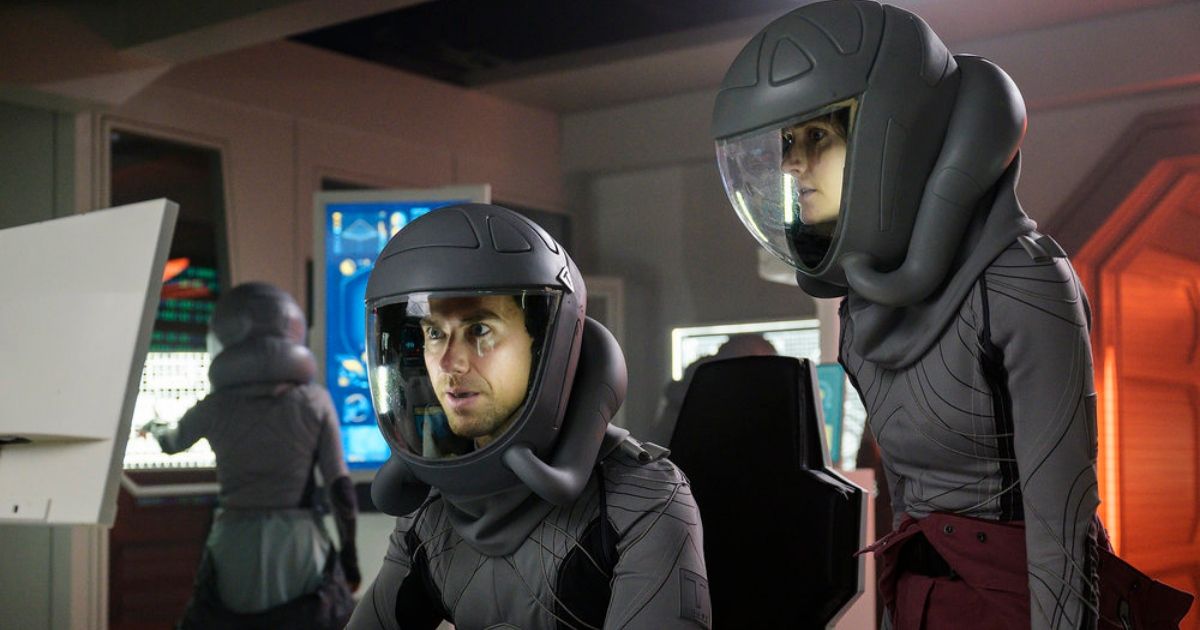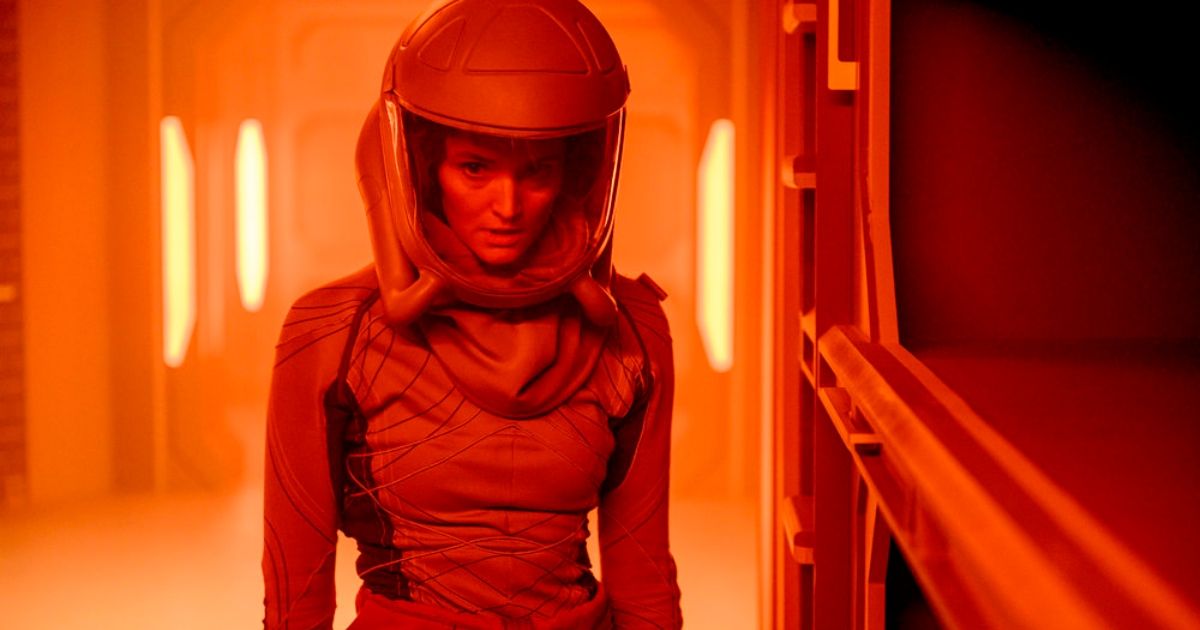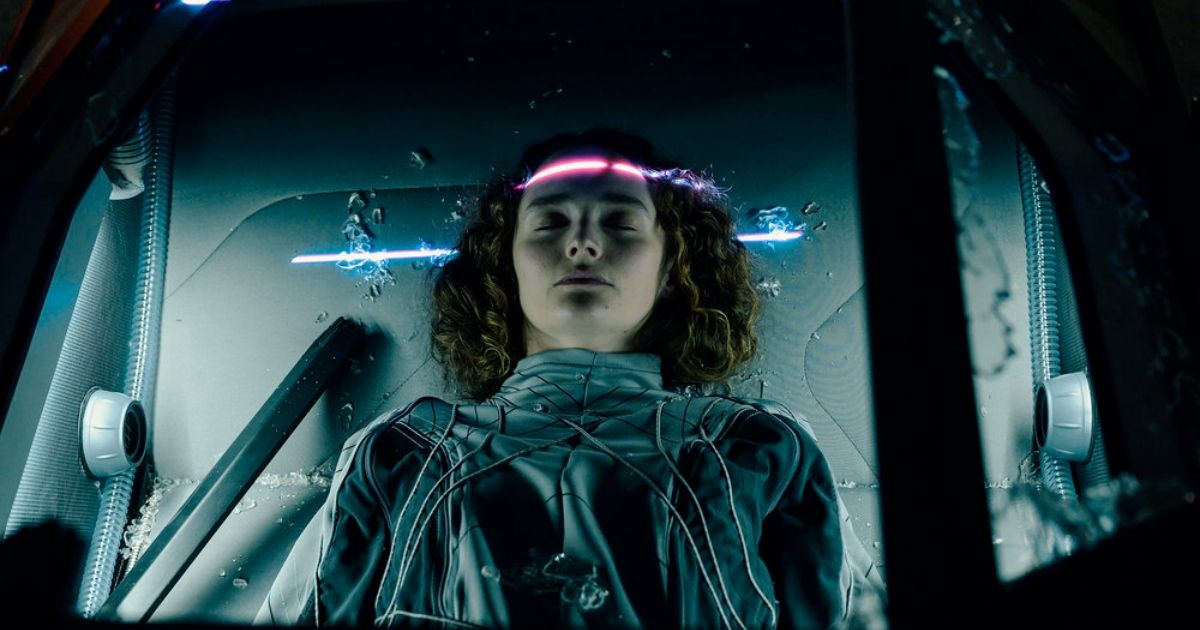Dean Devlin and Jonathan Glassner are partly responsible for the shape of science-fiction that audiences take for granted today. Devlin was the writer for Stargate, Independence Day, and 1998's Godzilla (along with the popular series Leverage). Glassner is a television institution, co-creating Stargate SG-1 and writing/directing acclaimed series such as the '90s Outer Limits, The Outpost, Falling Skies, along with famous detective shows like the original 21 Jump Street and CSI: Miami.
Both men produce much of what they write and create, and they're doing it again, this time together, with the new Syfy series The Ark. The sci-fi drama is set in the 22nd century when humanity is desperately seeking hospitable environments to colonize after the ecological collapse of Earth from centuries of industrialization and climate change. Large crews are sent forth into space on massive ships (or arks, bringing to mind another diluvial event), living in hope that there's a future for the human species.
The Ark chronicles the attempts of one crew after its ship is badly damaged and practically everyone of commanding authority is killed, leaving lower-level staff to navigate their own survival. A much more grounded sci-fi series, filled with secrets and drama among its diverse ensemble cast, The Ark premieres Wednesday, February 1st, at 10 pm. Devlin and Glassner spoke with MovieWeb about the series, its claustrophobic setting, and the secret to successful science fiction.
Syfy's The Ark Strands Humanity Without Authority
Lt. Sharon Garnet (Christie Burke) is the first to awaken from cryo-sleep when the hull is breached and alarms sound. The celestial ark is losing oxygen in the adrenaline-fueled opening of the series, as everybody climbs out of deep sleep and into code red panic, putting their helmets on for oxygen and trying to escape the room before it is destroyed. A behemoth of detritus breaks off from the ship and is lodged in a different part of it, as panic becomes pandemonium.
In less than 10 minutes, this crew of human survivors has woken up to a world without any commanding officers, no cryo-pods to sleep in, a paucity of food and supplies, and gradually dwindling power. Like a burgeoning civilization experimenting with democracy, they'll have to figure out who's in charge of what, and how to make heavy, life-altering decisions. As one character laments, every one of these decisions will be hard from here on out.
The Pressure Cooker of Spaceship Shows
The Ark brings to mind some of the great spaceship dramas, in which a large ensemble cast was essentially kept together in one big setting — Babylon 5, Battlestar Galactica, Farscape. These were great shows, and a lot of that greatness comes from the claustrophobic environment of a spaceship which forces the characters to interact in interesting ways. While there haven't been many great shows like this in over a decade (except for Avenue 5, which was an absurdist comedy), it is kind of a subgenre, and one which specifically interested Devlin and Glassner.
"Well, I think it's a pressure cooker," said Devlin, "and the shows that came before us, those were pressure cookers. And by having that, you can take human drama, and give it life-or-death stakes. And I think the thing that kind of makes our show different from what came before is that all the leadership, all the people who are planning to be in charge, they all die in the opening scene of the pilot. What this is really about — can the common person rise to a leadership position today without the mentorship... Can the best of them emerge? And can they overcome their internal conflicts with each other? This is not a show that's filled with laser beam fights or aliens of the week. This is really a human drama in this pressure cooker of a spaceship that has very little resources, that's damaged, and that still has a long way to go to get to its destination."
"Another thing that differentiates this show from the others," added Glassner, "is that it's set not so far in the future. It's not thousands of years in the future, so we don't have some of what I call the 'magic technology.' We don't have a bed that heals people, laser beams, shields, and all that kind of stuff. That makes it more challenging for our characters because in the science fiction world, they're dealing with primitive technology."
Devlin and Glassner on the Secret Sauce of Sci-fi Success
Between the inevitable sociopolitical collapse of the world as we know it due to climate change and its consequences, and the idea of democracies being extremely fragile, difficult things to manage, The Ark feels a bit topical. For Devlin, though, humanity has always been in crisis mode, and every generation predicts the apocalypse. "I think it's timeless," explained Devlin, "in the sense that there's always been those conflicts among humans. I think we're a very tribal species, evolutionarily. And so the question is, can we get past that and work together to survive, which is really what this whole show is about."
Devlin doesn't exactly feel the need to be topical — he and Glassner have been creating great work for decades, and by now, they tend to go with their gut feeling rather than what seems trendy. "I think there's a school of thought about doing research, and market research, and polling fans, and trying to figure out what people want, and looking at algorithms," said Devlin, "but my whole career has just been very simple. What do I want to see? And if no one else was making it, then I want to go make it." Devlin continued:
I approached this thing like a fan. You know, I grew up going to Comic-Cons, or in those days they were called Star Trek conventions, and I'm a true fan. I like genre entertainment. And this [The Ark] really is all about — what's the space show I want to see right now? And then I just hope that the passion that Jonathan and I have is infectious and other people feel that passion. So this isn't designed like, 'This is the kind of sci-fi that I think people will want to see today.' This is the show I want to see, and then hopefully others are like me and want to see it too.
Devlin seems to have figured out the secret to sci-fi success, to the extent that it's instinctual, and Glassner boils it down further — "I think that the secret sauce, if it were, is not just for science fiction, it's for every genre, and that's characters. If the characters aren't people you want to invite into your living room every day and hang out with, then nobody's gonna watch it. In this case, I think we have some great characters." Audiences will hopefully agree.
The Ark is produced by Electric Entertainment, Balkanic Media, and PFI Studios, with the first of 12 episodes airing February 1, 10 pm EST on the Syfy channel.




